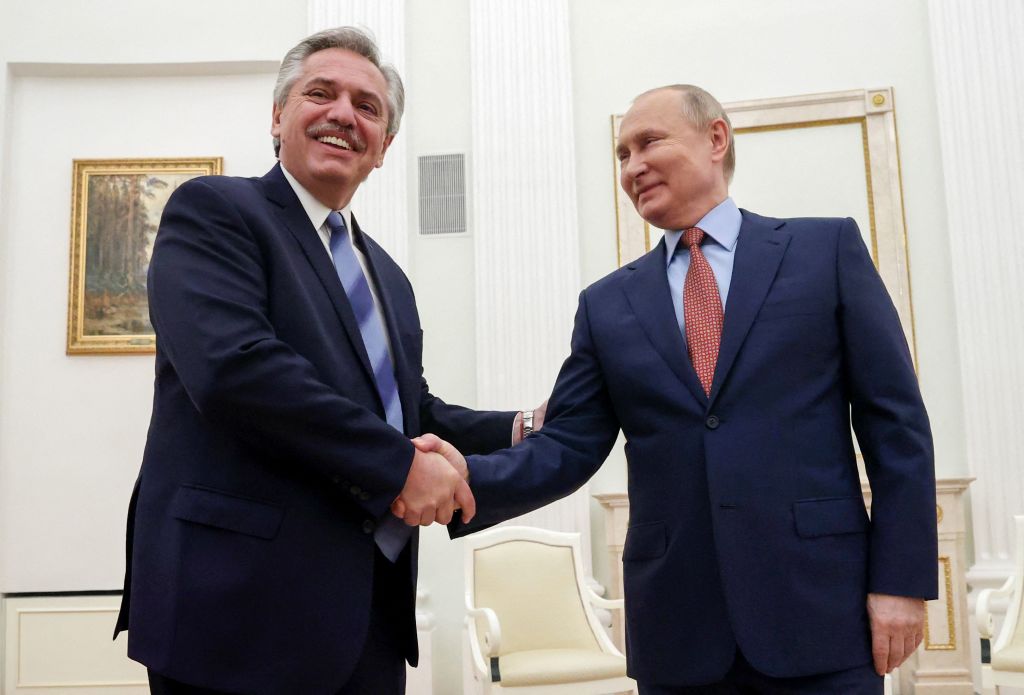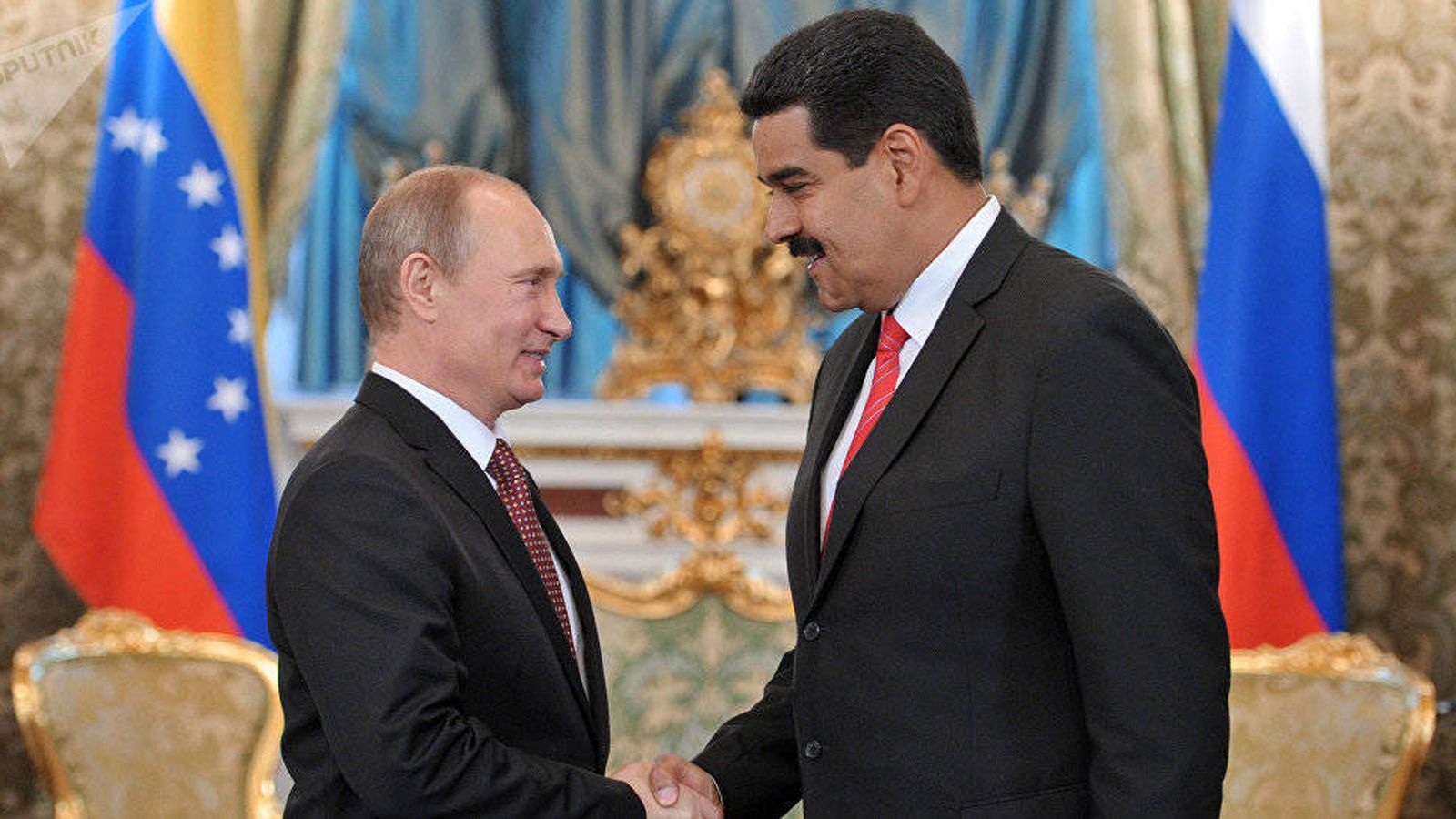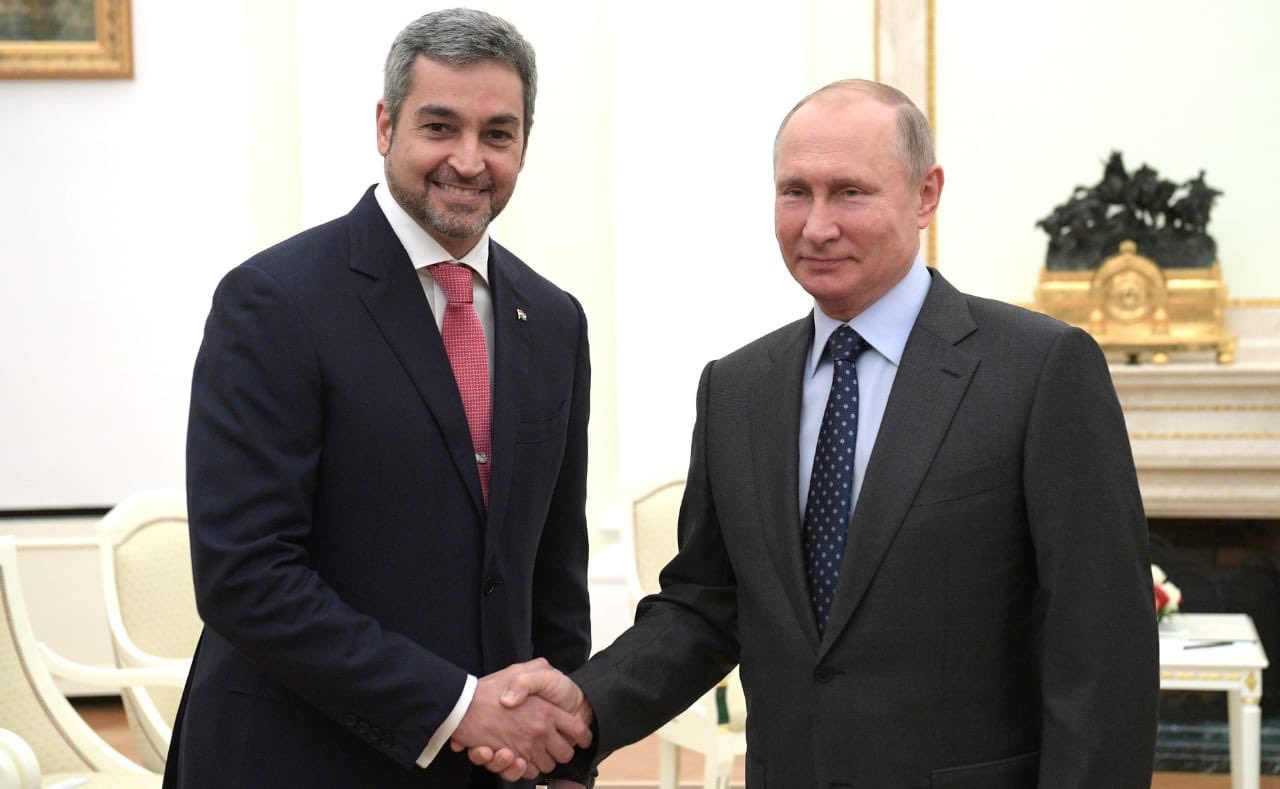The sanctions imposed this year by the US and the North Atlantic Treaty Organization (NATO) against Russia for its special military operation in Ukraine did not make Latin America distance itself from Moscow. On the contrary, several nations in the region moved even closer.
Different authorities and political leaders in Latin America have even expressed their interest, in exclusive interviews with the Sputnik Agency, in increasing relations with Russia despite the sanctions and pressure from the US to corner Moscow.
«The sanctions packages generated by NATO, the US and the European Union (EU) have not been as effective as their executors thought. Two phenomena occurred: on the one hand, they have failed because trade and cooperation contacts with Latin America have not diminished. On the other hand, they have led to an increase in relations with some countries,” Argentine sociologist and doctor of economic sciences Jorge Elbaum told Sputnik Agency.

During the Mercosur (Southern Common Market) summit that took place in Asunción at the end of July of this year, the Sputnik Agency managed to interview the foreign ministers Rogelio Mayta, from Bolivia, and Julio César Arriola, from Paraguay, who did not hesitate to point out Russia as an attractive country for investment and trade despite the sanctions.
Even the Russian ambassador to Paraguay, Alexandr Písarev, told the Sputnik Agency on July 8 that Latin American countries show “healthy pragmatism” in the face of the conflict in Ukraine despite the “harsh information war unleashed by the West against Russia.”
This pragmatism of Latin America is seen in the rejection that it has expressed to the policy of sanctions against Russia, “an instrument that does not help to resolve the conflict, but rather increases its scale,” he added.

“Officials in Washington do not hide the fact that they exert systematic pressure on their partners in the Organization of American States to induce them to cut ties with our country. The effectiveness of these efforts, however, is not very high,’ he stated.
He affirmed that this ineffectiveness in the pressures of the United States was seen in the “Summit of the Americas 2022”, where no Latin American state joined the sanctions against Russia.
LATAM
Elbaum, who is also a professor at the University of Buenos Aires, told this agency that in the international arena, Cuba, Nicaragua, Venezuela and Bolivia have increased their ties with both Russia and China.
“The failure of the sanctions is undoubted and is viewed with great concern by the US State Department, which is trying to get back on track, trying to discipline Latin American governments,” he added.
On December 14, Venezuela and Moscow signed 11 new agreements in the framework of the 16th meeting of the High-Level Intergovernmental Commission.
These nations maintain 326 instruments in the commercial, technical, military, energy, agriculture, food, transportation, science, technology, and public health areas.
For his part, the President of Cuba, Miguel Díaz-Canel, dressed in Russia at the end of November and met with Russian President Vladimir Putin; On that occasion, both countries called for strengthening cooperation, ratified their “ties of friendship and solidarity”, evaluated the importance of increasing Russian investment projects on the island, as well as the supply of food and supplies, and reiterated their interest in expanding the Russian tourist flow to the island.

On the other hand, Mayta told the Sputnik Agency that Bolivia hopes that the investment projects that Russia has in the country can be concluded despite the sanctions; In addition, he assured that Bolivia could “study, analyze and think” about the possibility of a Russian payment system equivalent to Swift.
Meanwhile, Nicaraguan President Daniel Ortega authorized his ambassador to Russia, Alba Azucena Torres Mejía, on October 21, to sign an agreement with Moscow “on cooperation in the field of non-energy applications of atomic energy for peaceful.”
Since 2007, when Daniel Ortega returned to the presidency of Nicaragua, both nations resumed their collaboration and alliance on strategic issues and of common interest, from the political sphere to the biotechnological one.
Affected sectors
The “minimally” affected sectors in Latin America are those that receive imports of agrochemicals produced in Russia, but the numbers show that this imbalance has been “momentary,” Elbaum said.
«It was the product of situations derived from payments, due to the fact that the US limits financial centers as participants in commercialization. However, this has been surpassed by Latin America, which has used alternatives, some through Asian financial centers to give continuity to the importation of products,” he added.
In February of this year, Brazil had difficulties at the beginning but the government of Jair Bolsonaro “did not submit to Washington’s demands” and continued its imports, he recalled.
In July of this year, the director of the Mercosur Department of the Brazilian government, Michel Arslanian, told Sputnik Agency that Brazil appreciates that Russia facilitates the acquisition of fertilizers and, for its part, intends to help Moscow to access food.
“In this context of difficulties, we value continuing with the access we are having to fertilizers, and that helps us to be able to comply, not only internally, ensuring food for the population, but Brazil as a food producer helps mitigate the effects of the disturbances in the supply chains”, stated Arslanian in the framework of the Mercosur summit.
The Brazilian government condemned the hostilities in Ukraine but denounced the anti-Russian sanctions imposed by the West.
Paraguayan case
In July of this year, Arriola said that the Paraguayan government intends to boost trade with Russia, especially in meat exports, while exploring other market areas.
In addition, he maintained that his country has “very good” relations with Russia and recalled that Moscow buys 40 percent of Paraguayan meat, making it the second buyer after China.
Along the same lines, on July 8, Pisarev said that the conflict in Ukraine did not change the bond of “friendship” that exists between the two states.

In addition, he estimated that trade between the two nations will grow again in the near future and assured that despite the Western sanctions against Moscow, Russian exports to Paraguay almost doubled.
Russia perspective
Elbaum said that trade between Latin America and Russia is expected to increase this coming year.
“There is no doubt that NATO, the EU and the US show superior fatigue in relation to the conflict in Ukraine and the forecasts of analysts, even those who do not sympathize with Moscow, show that the Russian economy is recovering much faster than the EU. And to the extent that Ukraine accepts the border conditions and the demilitarization demanded by Moscow, it is likely that the Russian economy articulated with China will grow much faster in the coming years, “he added.
According to the Russian Ministry of Economic Development, GDP will decrease by 2.9 percent in 2022 and by 0.8 percent in 2023; but already in 2024 and 2025 an annual increase of 2.6 percent will be registered.
